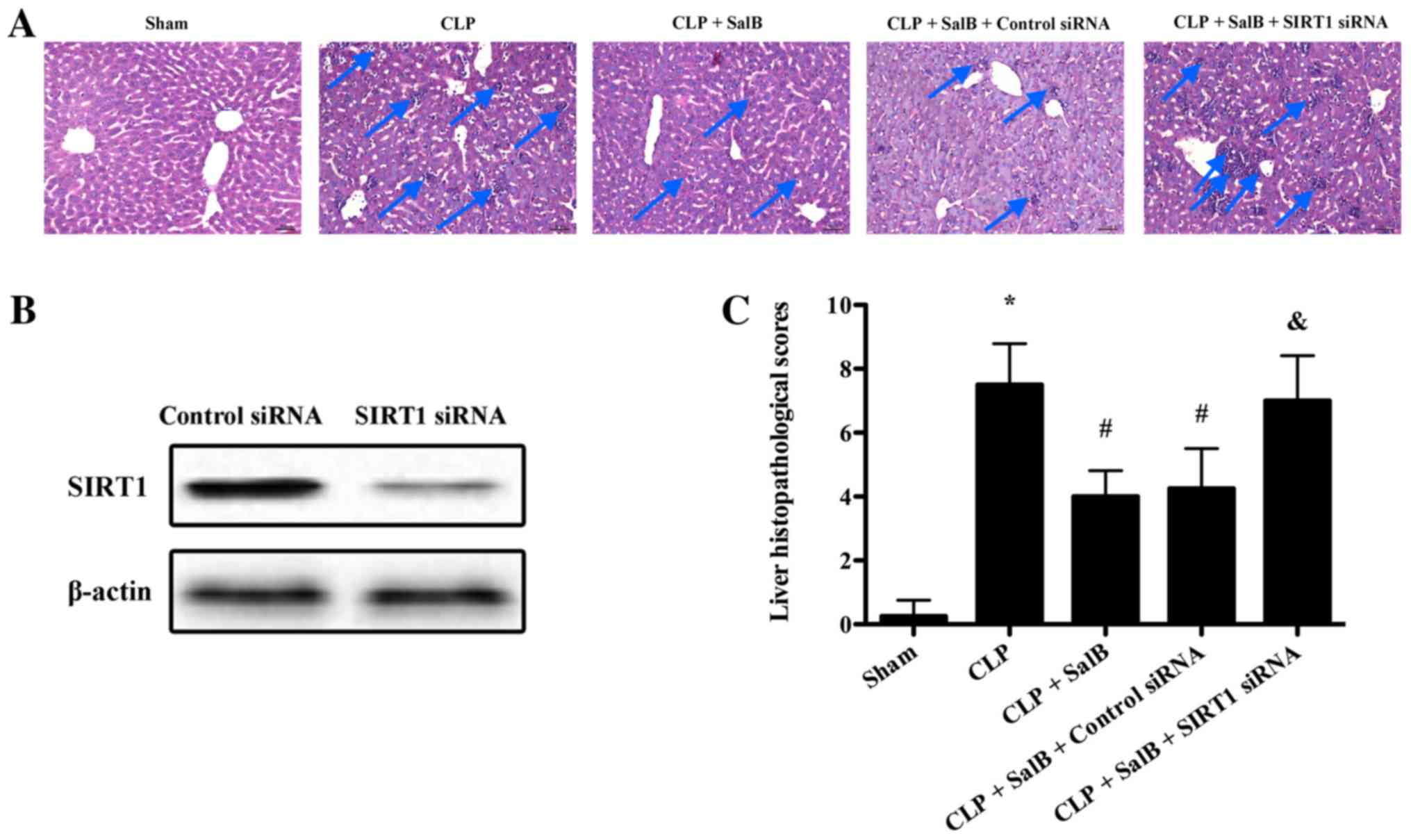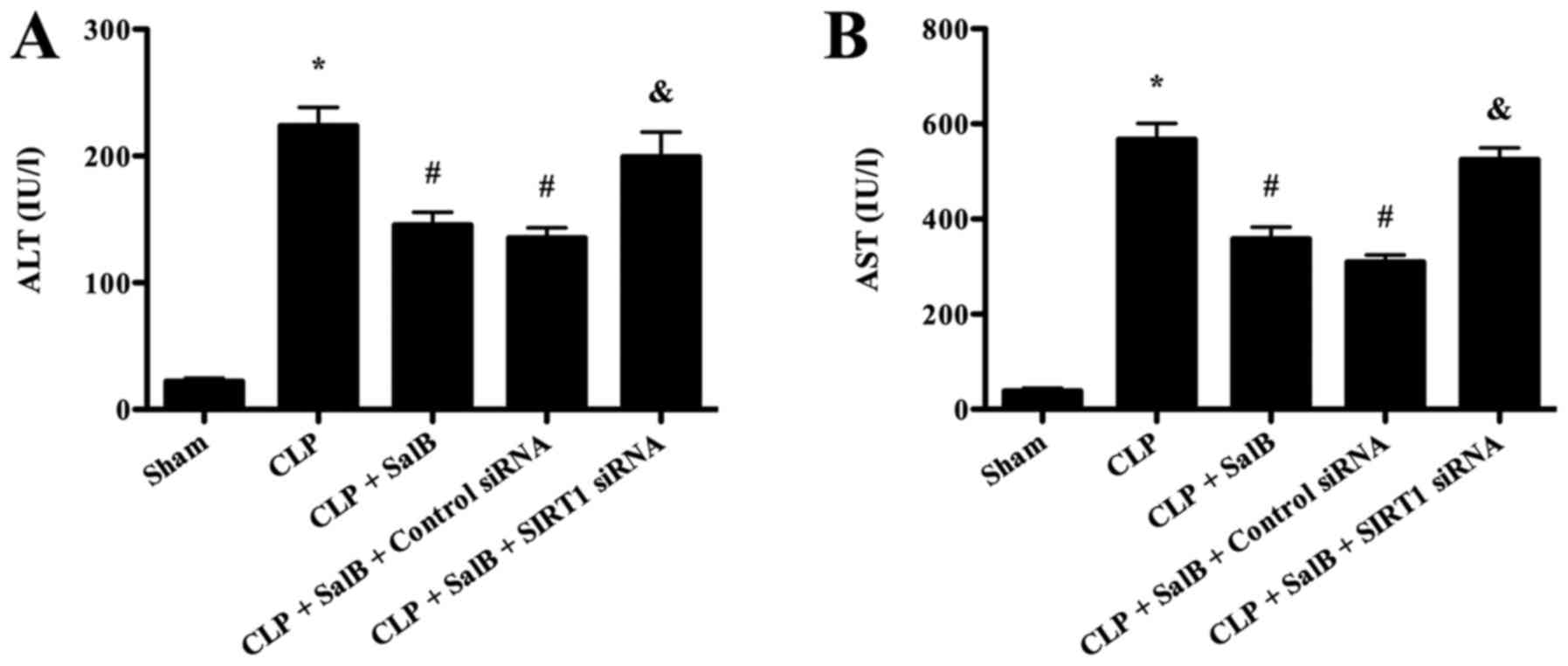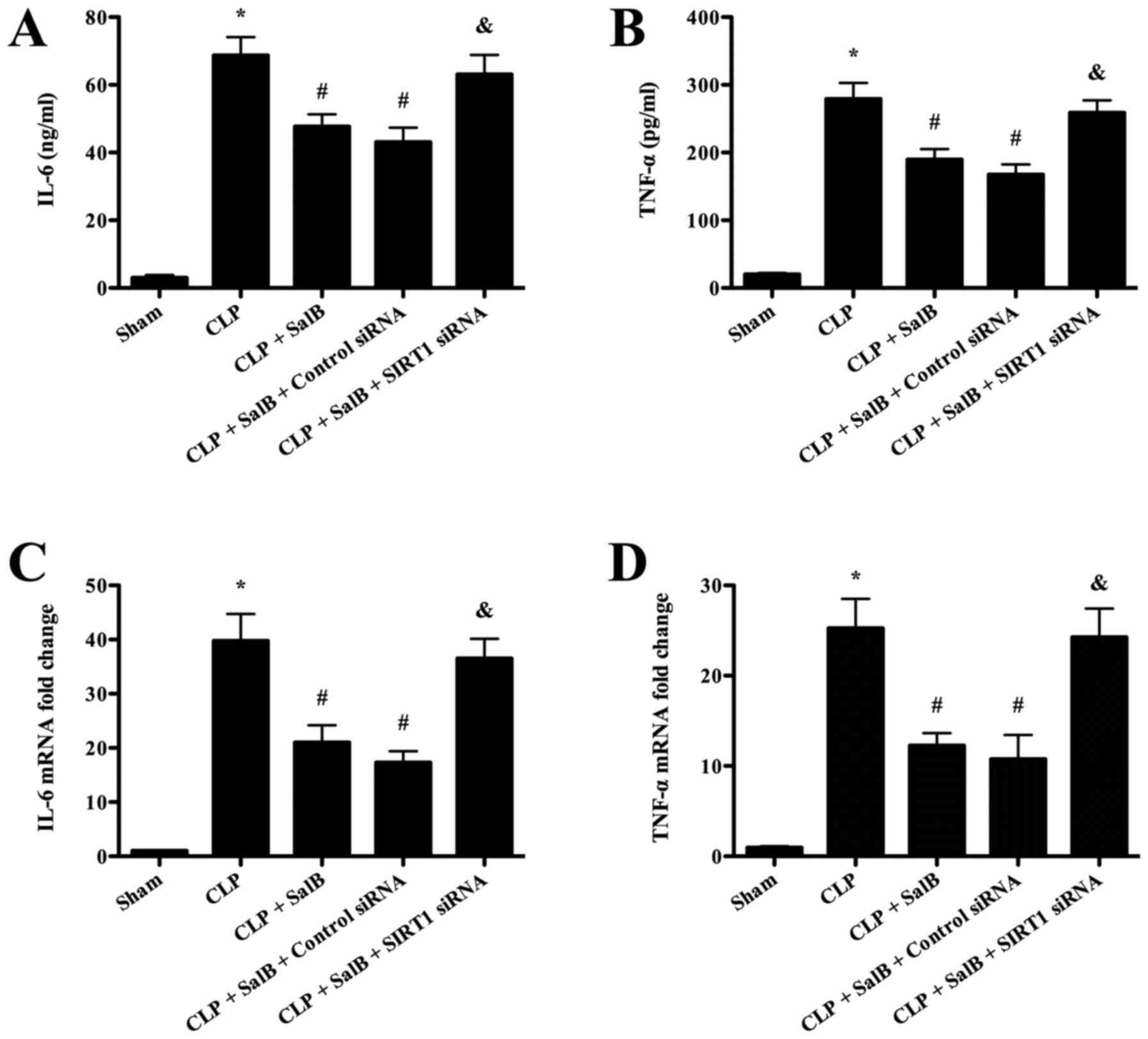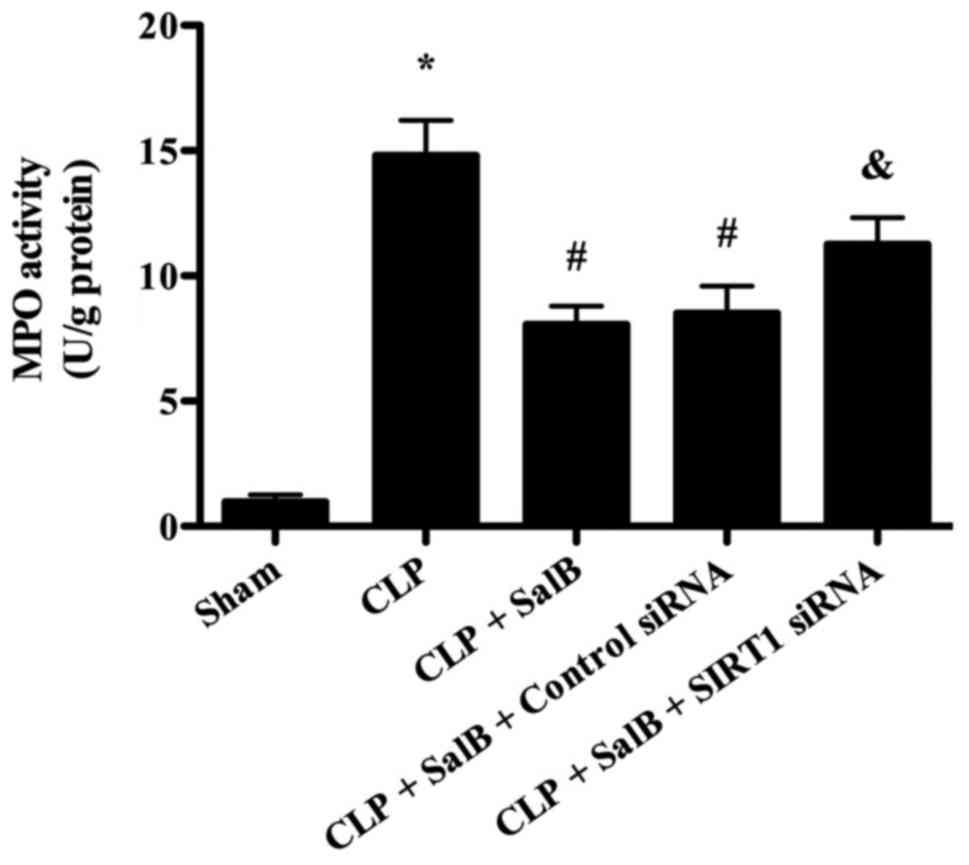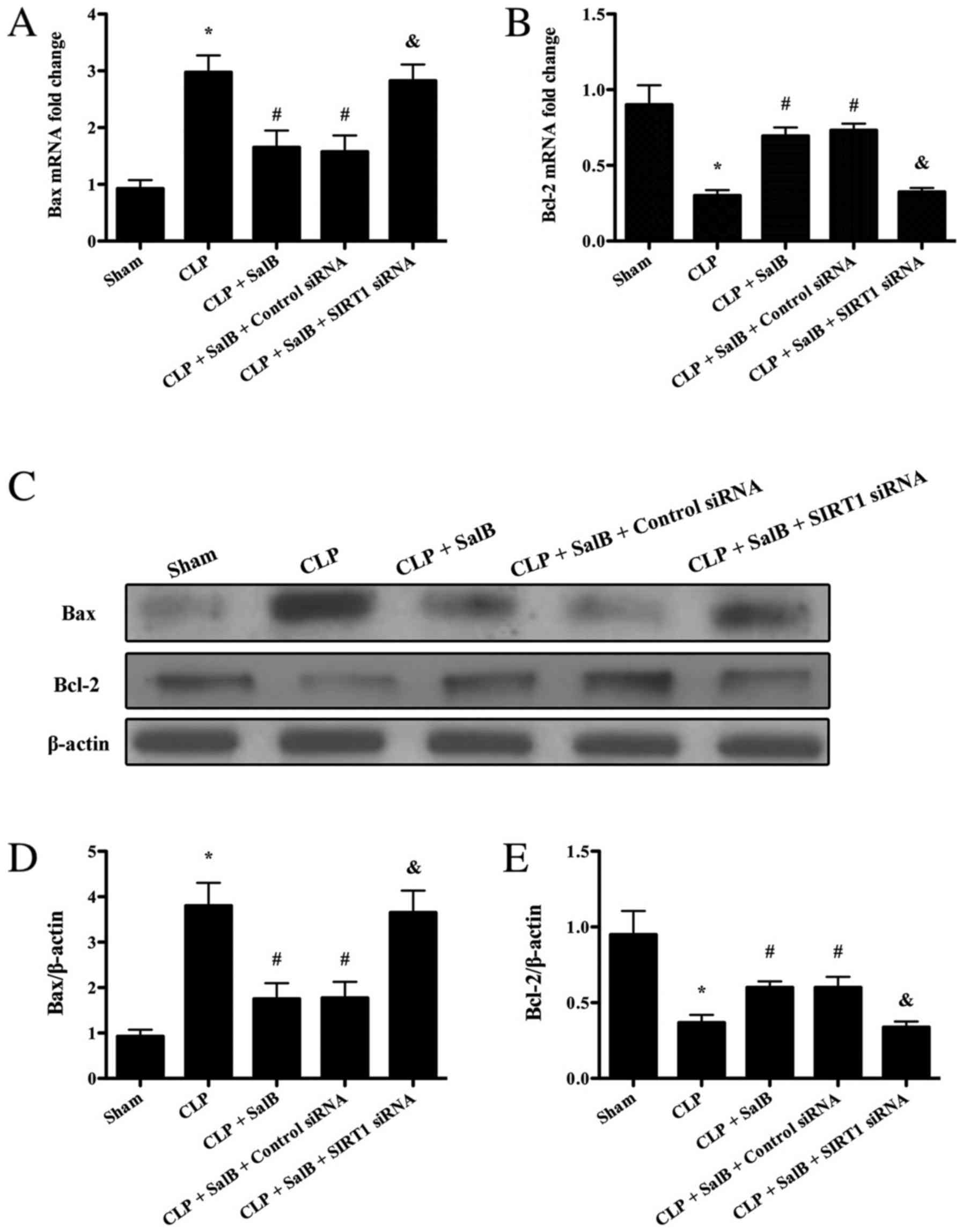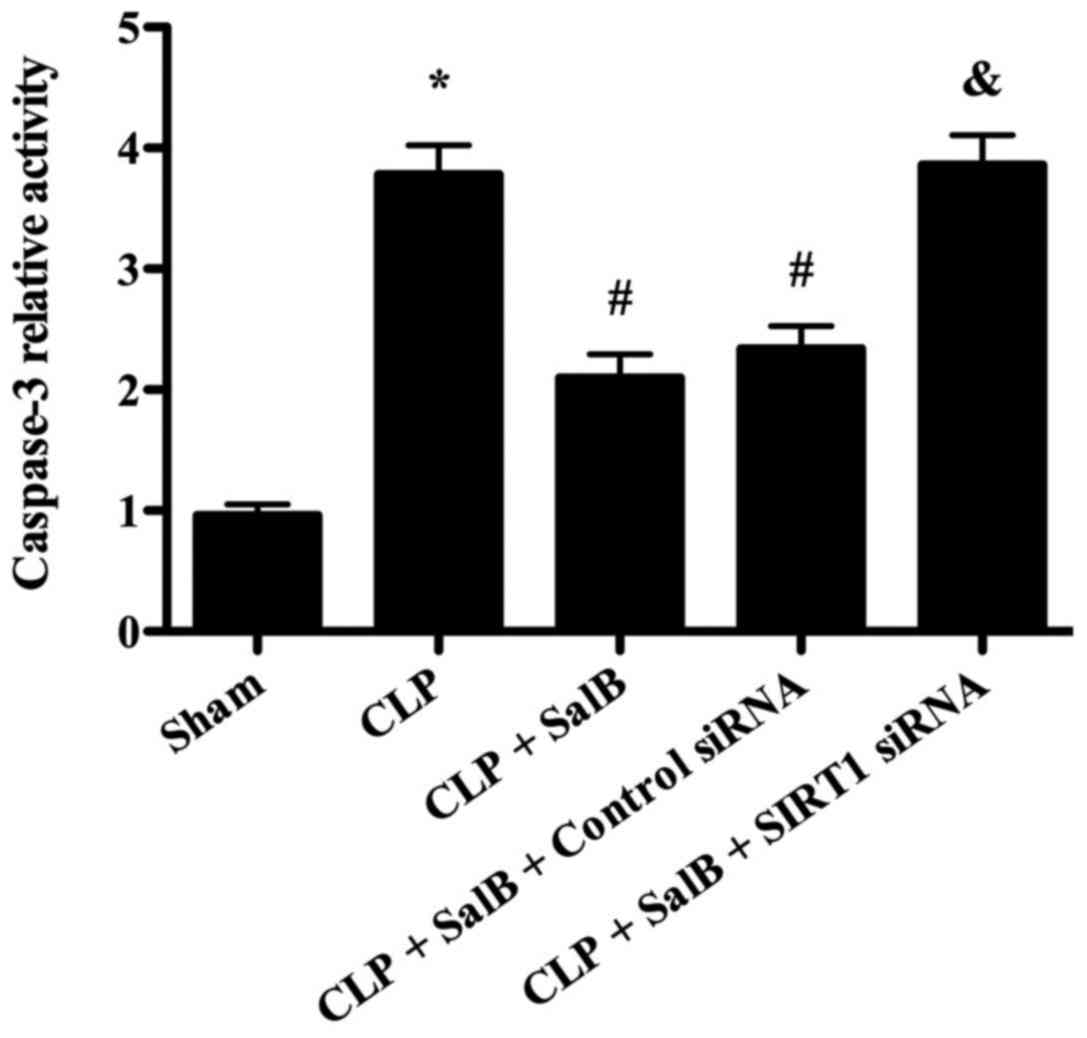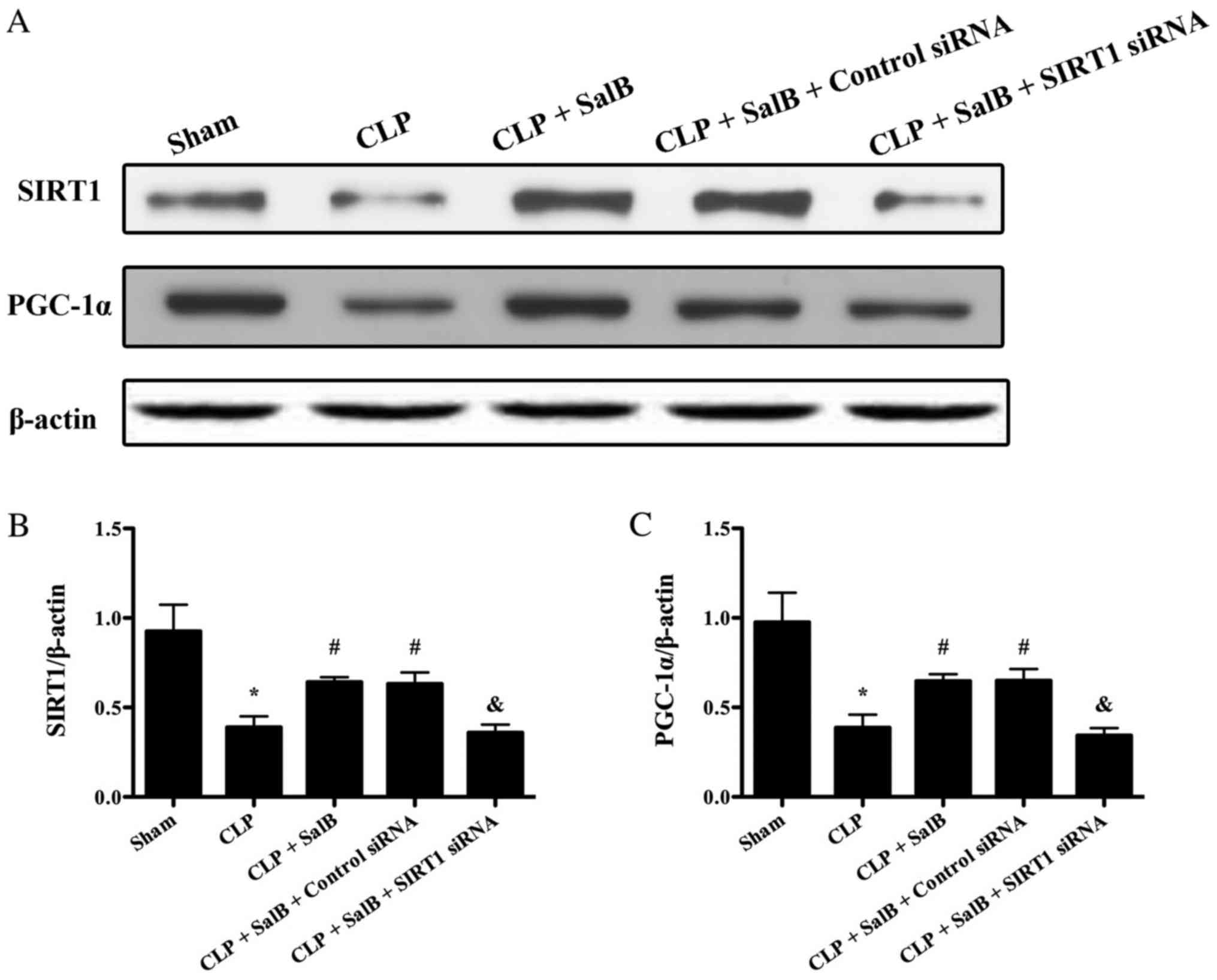|
1
|
Singer M, Deutschman CS, Seymour CW,
Shankar-Hari M, Annane D, Bauer M, Bellomo R, Bernard GR, Chiche
JD, Coopersmith CM, et al: The third international consensus
definitions for sepsis and septic shock (Sepsis-3). JAMA.
315:801–810. 2016.
|
|
2
|
Mayr FB, Yende S and Angus DC:
Epidemiology of severe sepsis. Virulence. 5:4–11. 2014.
|
|
3
|
Gofton TE and Young GB: Sepsis-associated
encephalopathy. Nat Rev Neurol. 8:557–566. 2012.
|
|
4
|
Jin L, Wang Q, Zhang H, Tai S, Liu H and
Zhang D: A synthetic peptide AWRK6 alleviates
lipopolysaccharide-induced liver injury. Int J Mol Sci.
19(E2661)2018.
|
|
5
|
Yang L, Zhang H and Chen P: Sulfur dioxide
attenuates sepsis-induced cardiac dysfunction via inhibition of
NLRP3 inflammasome activation in rats. Nitric Oxide. 81:11–20.
2018.
|
|
6
|
Hu Q, Knight PH, Ren Y, Ren H, Zheng J, Wu
X, Ren J and Sawyer RG: The emerging role of stimulator of
interferons genes signaling in sepsis: Inflammation, autophagy and
cell death. Acta Physiol (Oxf). 225(e13194)2018.
|
|
7
|
Kramer L, Jordan B, Druml W, Bauer P and
Metnitz PG: Austrian epidemiologic study on intensive care ASG:
Incidence and prognosis of early hepatic dysfunction in critically
ill patients-a prospective multicenter study. Crit Care Med.
35:1099–1104. 2007.
|
|
8
|
Yan J and Li S and Li S: The role of the
liver in sepsis. Int Rev Immunol. 33:498–510. 2014.
|
|
9
|
Yao Y, Feng Y and Lin W: Systematic review
and meta-analysis of randomized controlled trials comparing
compound danshen dripping pills and isosorbide dinitrate in
treating angina pectoris. Int J Cardiol. 182:46–47. 2015.
|
|
10
|
Guo C, Yin Y, Duan J, Zhu Y, Yan J, Wei G,
Guan Y, Wu X, Wang Y, Xi M and Wen A: Neuroprotective effect and
underlying mechanism of sodium danshensu [3-(3,4-dihydroxyphenyl)
lactic acid from radix and rhizoma Salviae miltiorrhizae =
danshen] against cerebral ischemia and reperfusion injury in rats.
Phytomedicine. 22:283–289. 2015.
|
|
11
|
Xu S, Zhong A, Bu X, Ma H, Li W, Xu X and
Zhang J: Salvianolic acid B inhibits platelets-mediated
inflammatory response in vascular endothelial cells. Thromb Res.
135:137–145. 2015.
|
|
12
|
Zhang JP, Zhang YY, Zhang Y, Gao YG, Ma
JJ, Wang N, Wang JY, Xie Y, Zhang FH and Chu L: Salvia
miltiorrhiza (Danshen) injection ameliorates iron
overload-induced cardiac damage in mice. Planta Med. 79:744–752.
2013.
|
|
13
|
Yang CW, Liu H, Li XD, Sui SG and Liu YF:
Salvianolic acid B protects against acute lung injury by decreasing
TRPM6 and TRPM7 expressions in a rat model of sepsis. J Cell
Biochem. 119:701–711. 2018.
|
|
14
|
Escribano-Lopez I, Diaz-Morales N,
Iannantuoni F, Lopez-Domenech S, de Marañon AM, Abad-Jimenez Z,
Bañuls C, Rovira-Llopis S, Herance JR, Rocha M and Victor VM: The
mitochondrial antioxidant SS-31 increases SIRT1 levels and
ameliorates inflammation, oxidative stress and
leukocyte-endothelium interactions in type 2 diabetes. Sci Rep.
8(15862)2018.
|
|
15
|
Ma R, Liang W, Sun Q, Qiu X, Lin Y, Ge X,
Jueraitetibaike K, Xie M, Zhou J, Huang X, et al: Sirt1/Nrf2
pathway is involved in oocyte aging by regulating cyclin B1. Aging
(Albany NY). 10:2991–3004. 2018.
|
|
16
|
Zhang T, Chi Y, Kang Y, Lu H, Niu H, Liu W
and Li Y: Resveratrol ameliorates podocyte damage in diabetic mice
via SIRT1/PGC-1α mediated attenuation of mitochondrial oxidative
stress. J Cell Physiol. 234:5033–5043. 2019.
|
|
17
|
Zhao L, An R, Yang Y, Yang X, Liu H, Yue
L, Li X, Lin Y, Reiter RJ and Qu Y: Melatonin alleviates brain
injury in mice subjected to cecal ligation and puncture via
attenuating inflammation, apoptosis, and oxidative stress: The role
of SIRT1 signaling. J Pineal Res. 59:230–239. 2015.
|
|
18
|
Gao XH, Xu XX, Pan R, Wang C, Sheng R, Xia
YF and Dai Y: Qi-Shao-Shuang-Gan, a combination of astragalus
membranaceus saponins with paeonia lactiflora glycosides,
ameliorates polymicrobial sepsis induced by cecal ligation and
puncture in mice. Inflammation. 34:10–21. 2011.
|
|
19
|
Liu B, Jian Z, Li Q, Li K, Wang Z, Liu L,
Tang L, Yi X, Wang H, Li C and Gao T: Baicalein protects human
melanocytes from H2O2-induced apoptosis via
inhibiting mitochondria-dependent caspase activation and the p38
MAPK pathway. Free Radic Biol Med. 53:183–193. 2012.
|
|
20
|
Livak KJ and Schmittgen TD: Analysis of
relative gene expression data using real-time quantitative PCR and
the 2(-Delta Delta C(T)) method. Methods. 25:402–408. 2001.
|
|
21
|
Wu X, Zhang B, Fan R, Zhao L, Wang Y,
Zhang S, Kaye AD, Huang L and Pei J: U50,488H inhibits neutrophil
accumulation and TNF-α induction induced by ischemia-reperfusion in
rat heart. Cytokine. 56:503–507. 2011.
|
|
22
|
Doi K, Leelahavanichkul A, Yuen PS and
Star RA: Animal models of sepsis and sepsis-induced kidney injury.
J Clin Invest. 119:2868–2878. 2009.
|
|
23
|
Parker SJ and Watkins PE: Experimental
models of gram-negative sepsis. Br J Surg. 88:22–30. 2001.
|
|
24
|
Wichterman KA, Baue AE and Chaudry IH:
Sepsis and septic shock-a review of laboratory models and a
proposal. J Surg Res. 29:189–201. 1980.
|
|
25
|
Buras JA, Holzmann B and Sitkovsky M:
Animal models of sepsis: Setting the stage. Nat Rev Drug Discov.
4:854–865. 2005.
|
|
26
|
Yan M and Yu Y, Mao X, Feng J, Wang Y,
Chen H, Xie K and Yu Y: Hydrogen gas inhalation attenuates
sepsis-induced liver injury in a FUNDC1-dependent manner. Int
Immun. 71:61–67. 2019.
|
|
27
|
Bozza FA, Salluh JI, Japiassu AM, Soares
M, Assis EF, Gomes RN, Bozza MT, Castro-Faria-Neto HC and Bozza PT:
Cytokine profiles as markers of disease severity in sepsis: A
multiplex analysis. Crit Care. 11(R49)2007.
|
|
28
|
An R, Zhao L, Xu J, Xi C, Li H, Shen G,
Zhang W, Zhang S and Sun L: Resveratrol alleviates sepsisinduced
myocardial injury in rats by suppressing neutrophil accumulation,
the induction of TNFα and myocardial apoptosis via activation of
Sirt1. Mol Med Rep. 14:5297–5303. 2016.
|
|
29
|
Gao X, Yan X, Yin Y, Lin X, Zhang Q, Xia Y
and Cao J: Therapeutic targeting of apoptosis inhibitor of
macrophage (AIM)/CD5L in sepsis. Am J Resp Cell Mol Biol.
60:323–334. 2018.
|
|
30
|
Marino G, Niso-Santano M, Baehrecke EH and
Kroemer G: Self-consumption: The interplay of autophagy and
apoptosis. Nat Rev Mol Cell Biol. 15:81–94. 2014.
|
|
31
|
Zheng D, Yu Y, Li M, Wang G, Chen R, Fan
GC, Martin C, Xiong S and Peng T: Inhibition of MicroRNA 195
prevents apoptosis and multiple-organ injury in mouse models of
sepsis. J Infect Dis. 213:1661–1670. 2016.
|
|
32
|
Hotchkiss RS, Tinsley KW, Swanson PE,
Grayson MH, Osborne DF, Wagner TH, Cobb JP, Coopersmith C and Karl
IE: Depletion of dendritic cells, but not macrophages, in patients
with sepsis. J Immunol. 168:2493–2500. 2002.
|
|
33
|
Hotchkiss RS, Tinsley KW, Swanson PE,
Schmieg RE Jr, Hui JJ, Chang KC, Osborne DF, Freeman BD, Cobb JP,
Buchman TG and Karl IE: Sepsis-induced apoptosis causes progressive
profound depletion of B and CD4+ T lymphocytes in
humans. J Immunol. 166:6952–6963. 2001.
|
|
34
|
Bouras M, Asehnoune K and Roquilly A:
Contribution of dendritic cell responses to sepsis-induced
immunosuppression and to susceptibility to secondary pneumonia.
Front Immunol. 9(2590)2018.
|
|
35
|
Wei S, Gao Y, Dai X, Fu W, Cai S, Fang H,
Zeng Z and Chen Z: SIRT1-mediated HMGB1 deacetylation suppresses
sepsis-associated acute kidney injury. Am J Physiol Renal Physiol.
1:F20–F21. 2018.
|
|
36
|
Ding M, Feng N, Tang D, Feng J, Li Z, Jia
M, Liu Z, Gu X, Wang Y, Fu F and Pei J: Melatonin prevents
Drp1-mediated mitochondrial fission in diabetic hearts through
SIRT1-PGC1α pathway. J Pineal Res. 65(e12491)2018.
|
|
37
|
Yue L, Zhao L, Liu H, Li X, Wang B, Guo H,
Gao L, Feng D and Qu Y: Adiponectin protects against
glutamate-induced excitotoxicity via activating SIRT1-dependent
PGC-1α expression in HT22 hippocampal neurons. Oxid Med Cell
Longev. 2016(2957354)2016.
|















